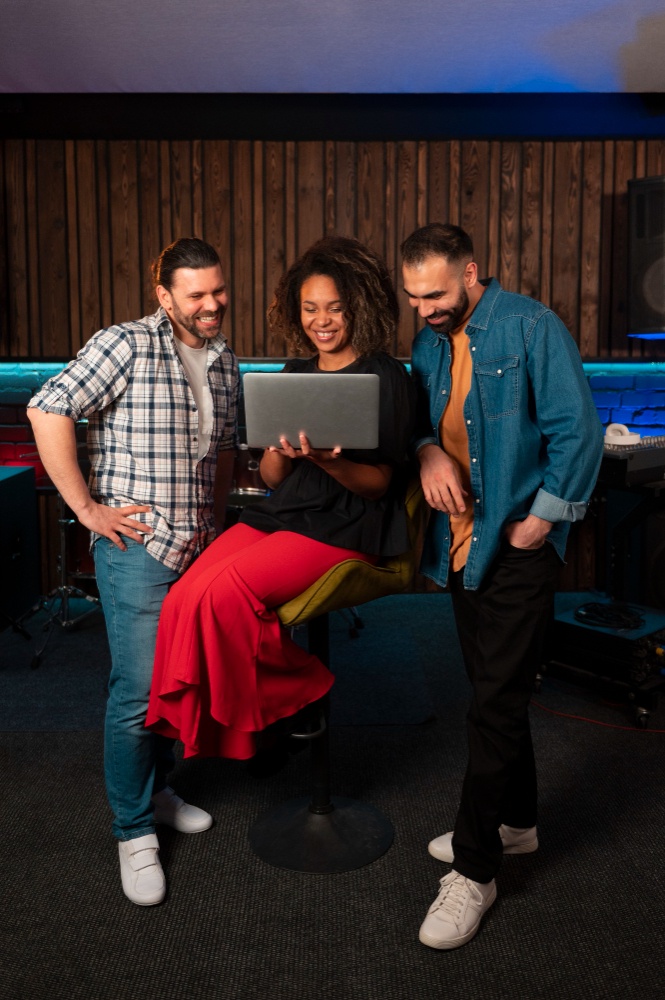In the vibrant city of Houston, Texas, the theater scene has undergone a remarkable transformation. This evolution, fueled by technological advancements, has not only changed how productions are staged but also how actors land roles. Let’s explore how these changes have unfolded, specifically focusing on the impact of technology on acting auditions in Houston, TX.
Expanding Reach and Interaction
Social media has revolutionized the way auditions are announced and conducted in Houston’s theater scene. Platforms like Facebook, Instagram, and Twitter have become crucial for disseminating audition information. The instant nature of these platforms means that news about auditions can reach a broad audience quickly and efficiently. Actors can now follow theaters and production companies, staying up-to-date with the latest opportunities.
Engagement and Community Building
Social media also fosters a sense of community. Actors, directors, and theater enthusiasts engage in discussions, share experiences, and offer support. This interactive aspect is vital, especially for emerging actors who benefit from advice and encouragement from the community.
Direct Access and Transparency
Another advantage is the transparency and direct access these platforms provide. Actors can directly communicate with casting directors or theater companies, ask questions about auditions, and receive prompt feedback. This openness helps demystify the audition process, making it more accessible to newcomers.
Streaming and Virtual Reality: Redefining Audience Experience
Live Streaming of Performances
The introduction of streaming services in theater has opened up new possibilities. Performances can now be broadcast live, reaching audiences who cannot physically attend. This expansion not only increases the viewership but also allows for a diverse audience base. Actors thus perform not just for a local audience but potentially a global one.
Virtual Reality in Rehearsals and Set Design
VR technology is starting to impact how actors and directors prepare for productions. Virtual sets can be created, allowing actors to immerse themselves in the environment of the play even before the physical set is built. This tool is particularly useful in complex productions where the set plays a crucial role in the narrative.
Data Analytics and AI: The Future of Casting
Predictive Analytics in Casting Decisions
Data analytics is becoming an integral part of the casting process. By analyzing trends and preferences, theaters can make data-driven decisions. This method could lead to more successful productions, as casting decisions are based on what resonates with audiences.
AI in Audition and Performance Analysis
The potential use of AI in analyzing auditions is a fascinating development. AI could review audition tapes, providing insights into an actor’s performance, such as emotional range and consistency. While this technology is still in its infancy in the theater world, it holds the promise of streamlining the audition process and aiding in objective decision-making.
Mobile Technology: Revolutionizing Access and Flexibility
Auditions Anytime, Anywhere
The advent of smartphones and tablets has dramatically changed how actors approach auditions. With high-quality cameras and recording apps, actors can film auditions in their chosen environment, allowing them to control lighting, sound, and overall setting. This flexibility is particularly beneficial for actors who may have other jobs or commitments.
Immediate Updates and Notifications
Mobile technology also ensures actors stay informed about audition opportunities and updates. Instant notifications mean actors can respond quickly to new information, be it a change in audition schedules or a new casting call.
Accessibility for Remote Actors
For actors outside of Houston, mobile technology bridges the geographical gap. They can participate in Houston’s theater scene without the need for physical relocation, democratizing access to opportunities.
Online Workshops and Training: Enhancing Skills Digitally
Diverse Learning Resources
The internet has made a wealth of resources available for actors. Online workshops, masterclasses, and tutorials from seasoned professionals provide actors with diverse learning opportunities. This is especially beneficial for those who may not have access to traditional acting schools or mentors.
Networking and Collaboration Online
These online platforms also offer networking opportunities. Actors can connect with peers, directors, and industry professionals globally. This networking can lead to collaborations, mentorship, and even casting opportunities.
Continuous Learning and Adaptation
Continuous skill development is crucial in acting, and online resources allow actors to keep up with the latest trends, techniques, and industry demands. They can learn at their own pace and according to their specific needs. For more details visit us at https://exaltedarts.org/.
The Human Element in a Digital Age
Balancing Technology with Personal Touch
While technology has streamlined many aspects of theater, the essence of acting — the human emotion and connection — remains irreplaceable. It’s crucial for actors and directors to remember that technology is a tool to enhance, not replace, the core elements of theater.
The Importance of Live Performance
There is an unmatched magic in live performances. The interaction between actors and the audience, the spontaneity, and the raw emotion are aspects that technology cannot replicate. Ensuring these elements remain central is vital for the art form’s integrity.
Adapting to a Hybrid Model
The future likely holds a hybrid model where technology and traditional methods coexist. Virtual auditions, digital rehearsals, and online training will complement, not replace, the physical audition rooms and stages.
Conclusion
The theater scene in Houston reflects a broader trend in the arts: a move towards integrating technology while maintaining the essence of the craft. From social media to AI, these tools offer actors and theaters unprecedented opportunities. However, the challenge and opportunity lie in using these advancements to enhance the art without losing the human touch that lies at the heart of theater. As technology continues to evolve, so will the ways actors perform, audiences engage, and stories are told, promising an exciting future for the world of theater.


No comments yet